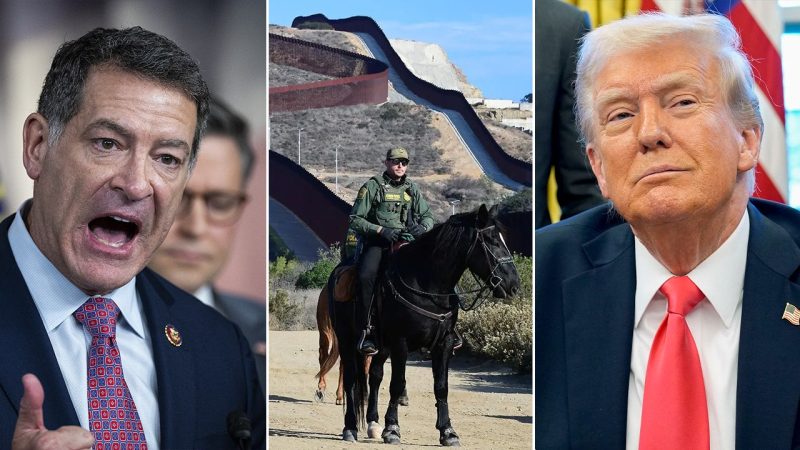
House Republicans have unveiled a bold $68.8 billion plan to bolster border security, a key component of their proposed budget. This substantial allocation is earmarked for two primary objectives: completing President Trump’s border wall and significantly increasing the number of Customs and Border Protection (CBP) agents. The plan represents a significant departure from previous approaches, moving beyond a purely physical barrier to a more comprehensive, technologically advanced system.
Instead of solely focusing on a physical wall, the proposed legislation allocates $46.5 billion towards a modernized “border barrier system.” This integrated approach incorporates physical fencing, coupled with advanced surveillance technology, improved roads, and enhanced lighting to create a more effective deterrent. An additional $5 billion is designated for new CBP facilities and personnel, a long-standing request from the Department of Homeland Security (DHS).
Further details reveal that $4.1 billion will be directly invested in hiring new frontline CBP agents, while another $2 billion is set aside for retention bonuses to incentivize both current and prospective employees. The plan also recognizes the need for modernizing existing equipment, allocating $813 million to upgrade the CBP vehicle fleet and addressing mechanical issues and high maintenance costs.
Technological advancements are also a focus, with $2.7 billion allocated to enhance border security technologies. This includes ground sensors, drones, radar systems, and advanced remote surveillance capabilities. Improvements to the biometrics system for tracking illegal migrants are also included, with a $673 million budget allocation. Air and maritime platforms will receive just over $1 billion in funding for upgrades and new acquisitions.
Beyond direct border security measures, the bill includes funding for logistical planning and threat assessment for major upcoming events in the U.S., such as $1 billion for the 2028 Summer Olympics and $625 million for the World Cup. Additionally, $1 million is earmarked to commemorate victims of crimes committed by illegal immigrants, and $500 million is dedicated to combating cartel drug smuggling activities at the border.
The proposed spending is part of a broader Republican effort to enact President Trump’s agenda through budget reconciliation. This process allows the ruling party to pass certain spending bills with a simple majority, circumventing the need for bipartisan support. The overall plan, which could reach $90 billion, also includes significant investments in fossil fuel energy, national defense, and tax cuts, extending the 2017 Tax Cuts and Jobs Act and eliminating taxes on tips, overtime pay, and retirees’ Social Security benefits. The DHS has already sent a memo to Congress warning that failure to pass this legislation would “undo all the Trump Administration’s Massive Successes.”
This ambitious plan is sure to spark intense debate, particularly given the significant financial commitment and its potential impact on various sectors. The coming weeks will undoubtedly witness heated discussions as Congress considers the far-reaching implications of this proposed border security initiative.










